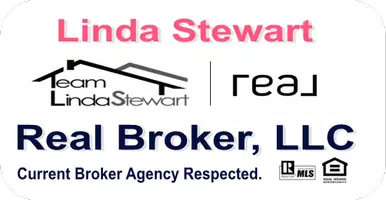Signs that a NYC basement apartment is a safe and legal rental
When Hurricane Ida blew through New York City in September 2021, it dumped more than half a foot of rain on Central Park in just a few hours, floated cars down city streets, and halted the subway system. At least 11 people were killed when their basement-level apartments filled with water or suffered other storm-related destruction.The storm cast new attention on the problem of basement apartments—and the city's lack of progress so far to bring more of these units up to code and make them safe for living. Bringing more basement apartments up to code is part of Mayor Eric Adams's City of Yes citywide rezoning plan.Not all basement apartments in NYC are illegal or unsafe, but you need to check them out carefully—or you could find yourself evicted after a surprise inspection—or the victim of a more tragic situation. Here’s how to tell if a basement apartment is legal. (And you can read more on how to avoid renting an illegal apartment and the pros and cons of living in a basement apartment.)[Editor's note: A previous version of this post was published in June 2024. We are presenting it again with updated information for March 2025.]Basement or cellar? In NYC, basements and cellars are not the same thing, and the difference in part determines whether a unit is a legal dwelling. According to the Department of Housing, Preservation & Development, a basement has at least half of its height above curb level, while a cellar is less than half above grade. This is one of the most obvious ways to tell whether a basement apartment is legal: Look at the ground-level of a building and check whether 50 percent of it is above grade. Generally, cellars in one- and two-family homes are never legal to rent as apartments because they usually lack more than one access point (more on that below) and are considered unsafe for use as living space. Certificate of Occupancy If you are want to confirm an apartment is legal, you should check the building's Certificate of Occupancy via the DOB’s Building Information System. It can easily be accessed on the DOB’s main page.A Certificate of Occupancy will state whether or not the basement is considered habitable. It also ensures that the apartment meets legal requirements and building codes.Are the ceilings high enough?In order for the apartment to be legal, the ceiling height must be a minimum of 7.5 feet high. This is a change from a previous minimum of 8 feet, thanks to a revision of the city’s building codes.Getting in and outBasement apartments must have multiple means of egress in case one entrance is blocked by fire or flooding, for example.There are important considerations for sleeping rooms in a basement apartment: They must have an egress window or door opening to the outside, the window sill can’t be more than three feet above the floor, and the window should be at least 30 inches tall by 24 inches wide.If you can’t picture climbing out of the window in an emergency because it is too high or too narrow—it is unsafe and therefore unlikely to be legal.Windows also bring in natural light and allow for ventilation, which are also DOB requirements for a legal dwelling. Other tell-tale signs If you have to access your apartment through a commercial space, like an office, that’s another indication the space is not likely legal.Other warning signs that a basement apartment is not a legal dwelling: A lack of ventilation, as well as a bathroom and/or kitchen that isn’t fully functional—for example, when the place to cook is merely a hotplate on a table.Extension cords plugged into outlets in another apartment are another warning sign. Pay attention and move on to the next listing. File a complaintIf you find an online listing for an illegal basement apartment, you can help out your fellow New Yorker by flagging it. Most listings platforms give you the option to report a problem, which can trigger a review and possibly removal of the listing. You can also call 311 or go to 311 online to report an illegal basement rental, which can result in an inspection by HPD. It's a good idea to do this before the place is rented because tenants will not be allowed to stay if the apartment is deemed illegal.—Earlier versions of this article contained reporting and writing by Austin Havens-BowenYou Might Also Like
Categories
Recent Posts

Havana After Dark at Eight Lounge Las Vegas 💃

Trump meets with big bank CEOs to talk about taking the GSEs public: Bloomberg

Rocket returns to profitability in Q2, yields early benefits from Redfin deal

Rocket seeing ‘awesome early data’ from Redfin acquisition

Agent count a bright spot for eXp in Q2 2025

Connecticut firms merge under Better Homes and Gardens Real Estate brand

Redfin integrates CubiCasa interactive floor plans

Anywhere CEO Ryan Schneider hints at more acquisitions and wants practical AI, not ‘hot air’

EXp World Holdings revenue, sales volume grows 1% during Q2

Redfin’s Glenn Kelman spills details on bittersweet transition to Rocket
Team Linda Stewart
Broker Associate | License ID: BS 15753.LLC
+1(702) 596-1351 | linda@teamlindastewart.com
